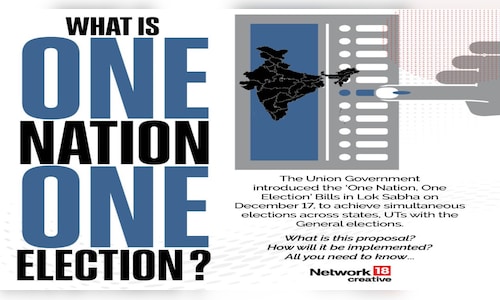
SUMMARY
The two bills aimed at establishing the mechanism for holding simultaneous elections were introduced in the Lok Sabha on Tuesday, December 17, after a heated debate. The Constitution (129th Amendment) Bill and the Union Territories Amendment Bill were passed through a division of votes, marking the first use of the electronic voting system in the new Parliament House. The bills secured 269 votes in favour and 198 against, after which the proceedings were briefly adjourned.
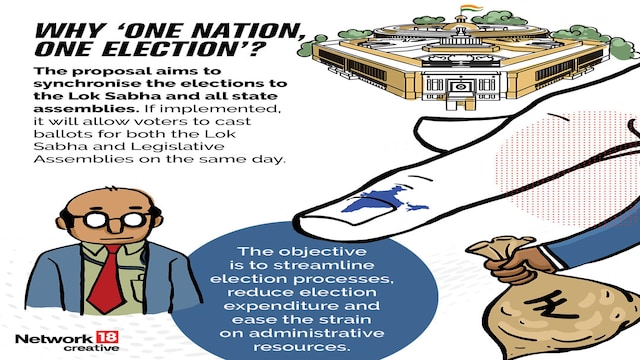
The two bills that lay down the mechanism to hold simultaneous elections in the country were introduced in Lok Sabha on Tuesday, December 17, after a fiery debate, with the opposition terming the move “anti-constitutional” and Law Minister Arjun Ram Meghwal asserting that the legislation would not tamper with the powers enjoyed by states.
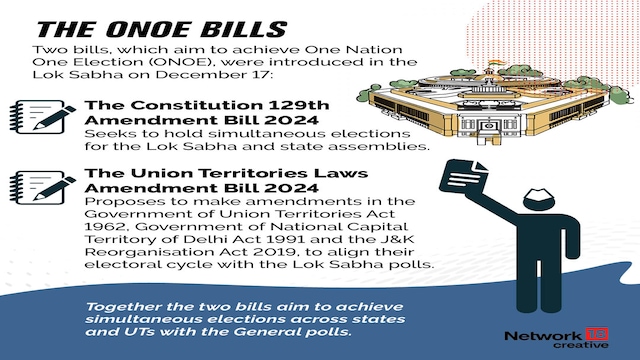
The Constitution (129th Amendment) Bill: The first bill introduces Article 82A to synchronize Lok Sabha and state assembly elections and amends Articles 83, 172, and 327. It allows the Election Commission to recommend delayed assembly polls if simultaneous elections are unfeasible.
Second Constitutional Amendment Bill: The second bill introduces Article 324A, empowering the central government to align municipal and panchayat elections with Lok Sabha and assembly polls. As local body elections fall under the State List, this bill requires ratification by at least half the states under Article 368.
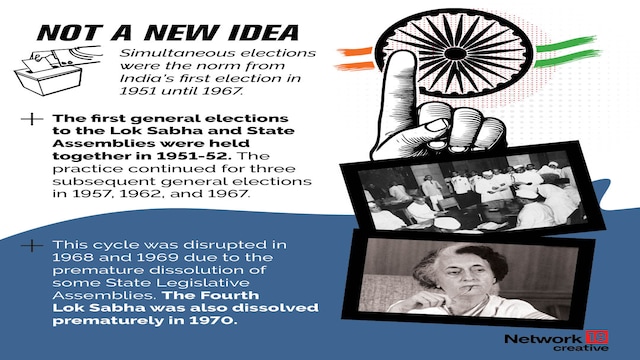
Simultaneous elections were the norm in India until 1967. The cycle was disrupted in 1968 and 1969 due to premature dissolution on some State Legislative Assemblies. The initiative seeks to bring back the simultaneous election cycle to address issues such as financial expenditure, administrative burden, and developmental disruptions caused by frequent elections.
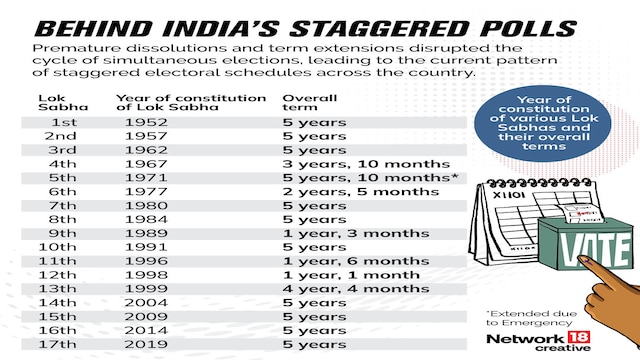
One Nation, One Election is a concept aimed at synchronising elections for the Lok Sabha and State Legislative Assemblies, as was the norm in India from 1951-52 to 1967. The ONOE proposal aims to bring back this practice, reducing election-related costs, improving administrative efficiency, and minimising the frequency of election-related disruptions.
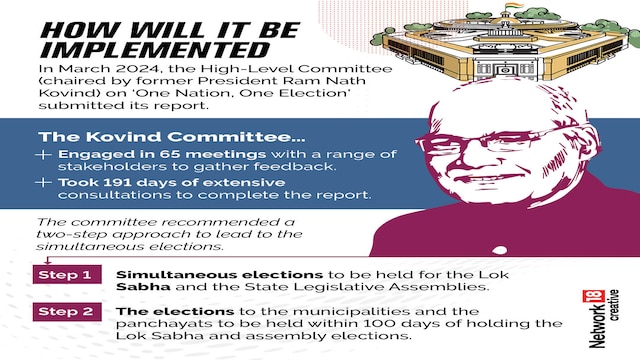
Once passed in both Houses of Parliament and ratified where necessary, the bills will be sent to the President for assent. After receiving the President’s approval, an implementation group will execute the changes. The bills also propose a single electoral roll for all elections within a constituency, requiring an amendment to Article 325. This provision will similarly require state ratification.
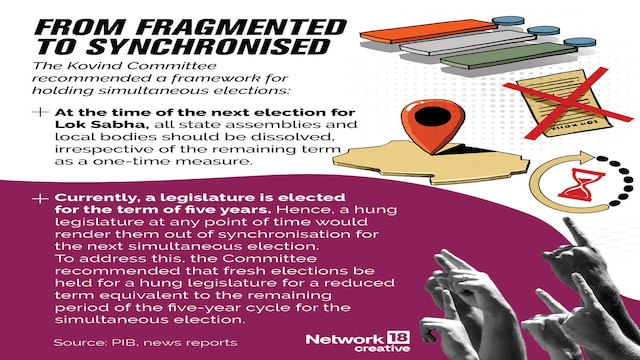
The Law Commission is expected to recommend holding simultaneous elections across three tiers of government—Lok Sabha, state assemblies, and local bodies—beginning in 2029. Additionally, the Commission may suggest provisions for a unity government to ensure governance stability in cases of a hung legislature.



